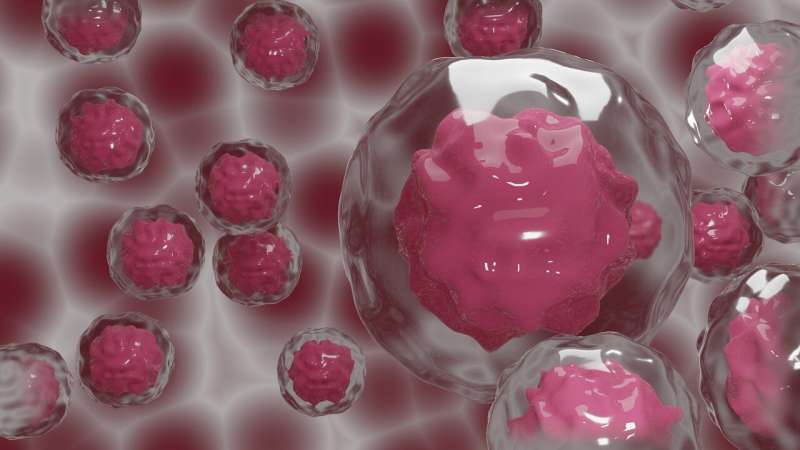#Cosmetic laser may boost effectiveness of certain anti-cancer therapies

“#Cosmetic laser may boost effectiveness of certain anti-cancer therapies”

Use of a cosmetic laser invented at Massachusetts General Hospital (MGH) may improve the effectiveness of certain anti-tumor therapies and extend their use to more diverse forms of cancer. The strategy was tested and validated in mice, as described in a study published in Science Translational Medicine.
Immune checkpoint inhibitors are important medications that boost the immune system’s response against various cancers, but only certain patients seem to benefit from the drugs. The cancer cells of these patients often have multiple mutations that can be recognized as foreign by the immune system, thereby inducing an inflammatory response.
In an attempt to expand the benefits of immune checkpoint inhibitors for additional patients, a team led by David E. Fisher, MD, Ph.D., director of the Mass General Cancer Center’s Melanoma Program and director of MGH’s Cutaneous Biology Research Center, conducted experiments in mice with a poorly immunogenic melanoma that is not hindered by immune checkpoint inhibitors. The researchers found that exposing the melanoma cells to ultraviolet radiation caused them to take on more mutations, which made immune checkpoint inhibitors more effective at boosting the immune response against the melanomas. Somewhat unexpectedly, the enhanced response included immune attack against non-mutated proteins in the tumor, a process called “epitope spreading.”
“Epitope spreading could be important because many human cancers do not have very high mutation numbers, and correspondingly do not respond well to immunotherapy, so a treatment that can safely target nonmutated proteins could be valuable,” Fisher explains.
The researchers next sought to find a substitute for the response triggered by mutations after ultraviolet radiation, since it’s likely not safe to add mutations to a patient’s tumor as a treatment strategy. “We discovered that use of a cosmetic laser, also known as a fractional laser, developed at MGH, when shined on a tumor, could trigger a form of local inflammation that mimicked the presence of mutations, strongly enhancing immune attacks against nonmutated tumor proteins, thereby curing many mice of tumors that otherwise did not respond to immunotherapy,” says Fisher.
The findings suggest that using such a laser approach, or other methods to optimize immune responses against nonmutated targets on tumors, might make immune checkpoint inhibitors effective against currently incurable cancers.
New humanized mouse model provides insight into immunotherapy resistance
“Epitope spreading toward wild-type melanocyte-lineage antigens rescues suboptimal immune checkpoint blockade responses” Science Translational Medicine (2021). stm.sciencemag.org/lookup/doi/ … scitranslmed.abd8636
Citation:
Cosmetic laser may boost effectiveness of certain anti-cancer therapies (2021, February 17)
retrieved 18 February 2021
from https://medicalxpress.com/news/2021-02-cosmetic-laser-boost-effectiveness-anti-cancer.html
This document is subject to copyright. Apart from any fair dealing for the purpose of private study or research, no
part may be reproduced without the written permission. The content is provided for information purposes only.
If you liked the article, do not forget to share it with your friends. Follow us on Google News too, click on the star and choose us from your favorites.
For forums sites go to Forum.BuradaBiliyorum.Com
If you want to read more Like this articles, you can visit our Science category.



